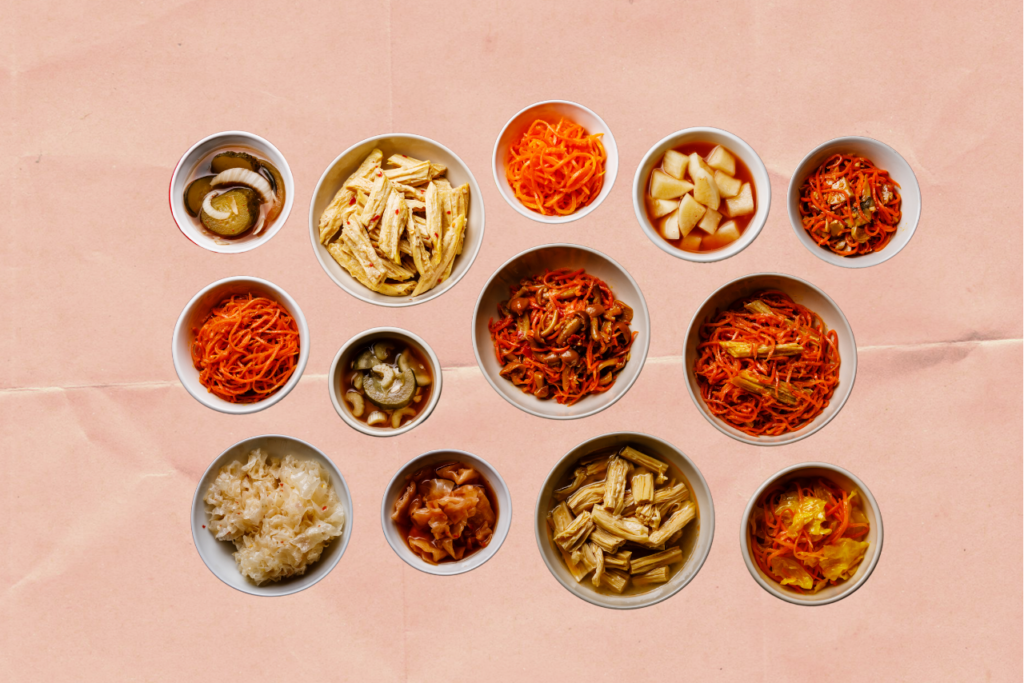Ideal for for improving your gut health
The 2022 reboot of ‘You Are What You Eat’ reminded us all how about the importance not only of what goes into the body, but also, what comes out of it.
Around four in ten people struggle with uncomfortable gut and digestive-related problems. And with UK Google searches for ‘gut health’ up by 83%, it’s certainly looking like an issue that isn’t going to simply go away.
Research has also shown that gut bacteria could influence the severity of Covid-19 infections and the body’s immune response, making it even more important to pay attention to every gurgle.
But the good news is that simple mealtime switches could improve gut health. And with 41% of Brits hoping to improve their diet this year, with the help of Dr Gill Hart, scientific director at food intolerance specialist YorkTest, here are 6 expert-backed ways to love your gut this year.
TAKE YOUR TIME
Perhaps the easiest tip to implement into any daily routine is to slow down your mealtimes. Properly chewing food helps to break it down which, in turn, removes any additional strain on the digestive system.
A stressed stomach will lead to indigestion, cramps, and bloating. Instead, a meal that’s been chewed thoroughly will pass through the gut more efficiently, and could also help with nutrient absorption.
Eating slowly and mindfully also ensures you’re more satisfied after each meal. It can take around 20 minutes for the gut to tell the brain it’s full, so giving it more time to communicate can also stop any uncomfortable overeating – perfect for any fitness goals this new year.
Ideal tip: Eliminate all distractions from the dinner table. So, phones placed well out of reach, T.Vs off and work laptops banned. Instead, make your dining experience more pleasurable – light some candles for dinner, put on some chilled music and concentrate on your meal.
MAKE SUGAR SWAPS
Try to reduce your refined sugar intake to boost your gut’s good bacteria. Excessive sugar promotes the growth of unwanted bacteria which results in digestive discomfort.
Lowering the amount of sugar you consume also can have a number of wider health benefits, including fewer trips to the dentist and more stable energy levels, making those dreaded afternoon slumps less frequent.
Ideal tip: Many breakfast cereals are high in sugar. Switch to a lower-sugar cereal like Weetabix or plain porridge. We know, it’s a little boring, so add a banana or some dried apricots for a dose of sweetness.
INTRODUCE FERMENTED FOODS
Fermentation is a food processing technique that encourages controlled growth of good bacteria, breaking down sugars and turning them into sour-tastic compounds such as acids, gasses or, sometimes, alcohol. Originally used to preserve food for longer, it’s become increasingly popular recently thanks to its unique, tangy taste and potential health benefits.
Read: 5 reasons to include fermented foods full of probiotics in your diet this year
Foods in this group include sourdough bread, sauerkraut, pickles, kimchi and vegan staple, tempeh. Each of these dishes is packed with gut-friendly enzymes, vitamins and probiotics that help to maintain a balanced digestive tract.
These foods have also already been partially broken down by the bacteria, so just like chewing your food slowly, fermented foods reduce unnecessary digestive strain. Growing in popularity, many fermented foods are available in all grocery stores and supermarkets – or you can even make your own.
Ideal tip: Keep a packet of unpasteurised kimchi in your refrigerator. A kimchi cheese toastie for lunch is a wonderful thing!

THINK ABOUT FIBRE
There are many reasons why fibre is an essential ingredient for gut health. Like water, it helps to keep bowel movements regular and soft, so waste can pass through the body easily.
Fibre also helps to feed the good bacteria in your gut, keeping your digestive system and wider body healthy.
There are lots of ways to boost your fibre intake and it’s found in lots of delicious foods, including beans and pulses, broccoli, berries, apples, dried fruits, wholegrains and oats.
Making fibre-rich bakes has been identified as one of 2022’s biggest baking trends, while the Food and Drink Federation launched an initiative to boost fibre intake last September. This is good news for your gut, and your taste buds – so on your marks, get set, bake!
Ideal tip: Stock up your store cupboard with ingredients for fibre rich bakes. Having those ingredients always on hand at home can motivate you to bake more.
STAY HYDRATED
Drinking plenty of water is good for the gut – as well as regulating function, staying hydrated encourages healthy bowel movements which flush the body of toxins, keeping common stomach complaints at bay.
Ideal tip: Keep a jug of water by bed and as soon as you wake up, glug that guy merrily. Not only is it a great way to up your water intake, after a long rest, your body will appreciate the hydration.

LISTEN TO YOUR GUT
More and more researchers are identifying the link between the gut and the brain. External stress can often lead to digestive complaints, while an imbalance of bad bacteria in your stomach can also cause your emotions to seesaw.
The best advice for anyone who wants to improve their gut health is to understand their own personal triggers – whether that’s food or certain events. While refining your lifestyle, learning about your body’s specific intolerances can help to make informed choices that work for your mind, body and gut.
And with that, let’s keep the gut train gurgling; check out why probiotics could be an important part of a healthy lifestyle.





